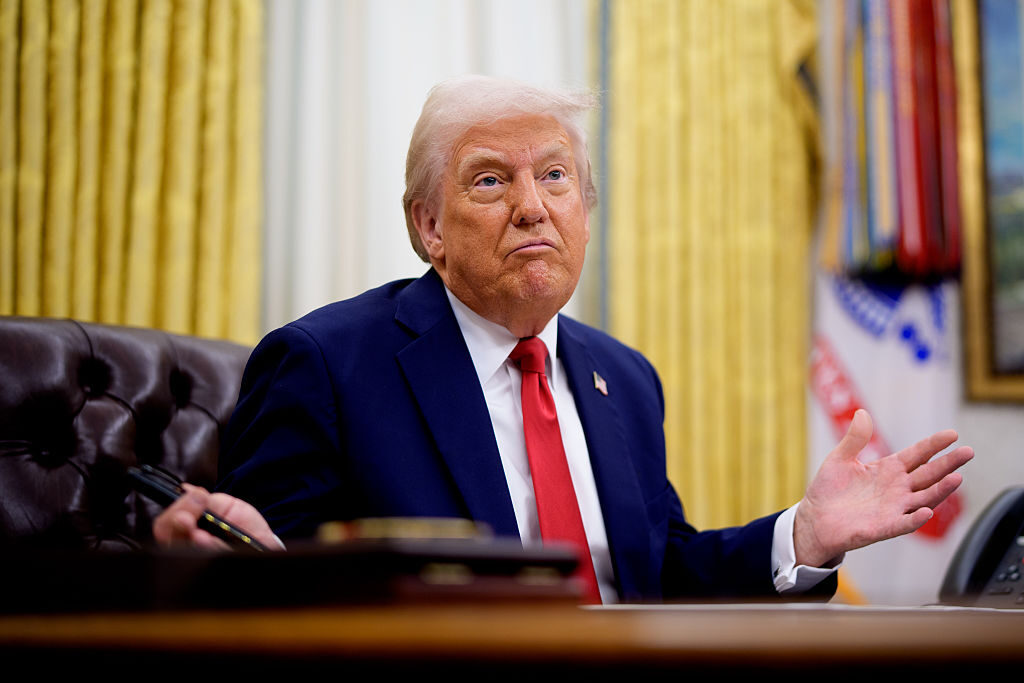As Donald Trump’s so-called “Liberation Day” on tariffs arrives, observers are wondering whether Canada’s change of leadership will have any effect on the eventual settlement. And if the first phone call last week between US President Donald Trump and Canadian PM Mark Carney is any indication, the American administration seems ready to take a softer tone toward its northern ally — even as both sides remain firm in their readiness to wage a tit-for-tat trade war.
The shift became clear after the call when Trump posted a more restrained and respectful message on Truth Social, referring to Canada’s leader by his title (instead of “governor”) and dropping all talk of “the 51st State”. At a press conference, Trump explicitly noted that he was “not referring to Canada” when talking about “countries that have taken advantage of us”, after previously claiming that Canada was a “nasty” trade partner. For his part, Carney affirmed that Trump “respected Canada’s sovereignty”, something he had laid down as a precondition for meeting with his American counterpart.
What explains this sudden change in the US President’s rhetoric and, more importantly, will it last? Perhaps learning from his predecessor’s blunders, Carney has been careful to adopt a negotiating posture with the US that is both smarter and more confident. For instance, where Trudeau casually — if unwittingly — conceded the fact of Canada’s economic dependence on American trade last year, Carney has been adamant in affirming Canada’s available options for reorienting its economic and strategic relationships. This was most evident in his decision to make Paris and London the destinations of his first official trip as PM, snubbing Washington — the traditional place to go for new Canadian leaders. Carney also questioned the viability of continuing to buy American F-35s, before flatly declaring the US-Canada relationship to be effectively “over”.
This willingness to assert independence from Washington has evidently rattled the US — as evidenced by an earlier Truth Social post threatening more tariffs on both Canada and the EU should they establish closer trade ties. But such moves have also allowed Ottawa to illustrate, in no uncertain terms, what leverage it does have before its larger and more powerful neighbor.
Canada’s auto and steel sectors are already bracing for layoffs with the toll of Trump’s tariffs projected at around 1.5 million job losses, amounting to a recession. Yet there are also signs, in line with Trump’s milder tone, that the US is considering lessening the impact of its 25% global auto tariffs on Canada, with whom its manufacturing sector is deeply integrated.
As Trump himself indicated, he is interested in meeting with Carney after the election — in language suggesting he foresees a Liberal victory — in order to work out a deal (i.e. a renegotiation of USMCA) that will be “great for both the United States and Canada”. It is unlikely, however, for either side to desire a return to the status quo ante, most of all the Canadians whose trust in the US has been mortally damaged. USMCA was, after all, signed by Trump himself in 2018. His dramatic contravention of the terms of his own trade deal has basically erased American credibility in the eyes of Canada and, indeed, much of the rest of the world.
In that case, a new settlement is more likely to be negotiated around a gradual unbundling of the two economies, as the US looks to be more internally self-sufficient, and as Canada looks for more reliable trading partners beyond the American orbit. Such an outcome would at least allow both Ottawa and Washington to pursue divergent paths while giving their economies time to plan and adapt accordingly.
To the real estate negotiator in the White House, who has been known to respond to strength and decisiveness, Carney’s headstrong tactics may be enough to move the needle, at least a bit. Though as ex-Trump adviser-turned-critic John Bolton cautioned, nobody should “over-conclude” anything about the notoriously fickle President. And to the voters of Canada, Carney’s actions could serve as yet more proof that he is the man to lead the country through tumultuous times ahead: the polls seem to suggest as much.











Join the discussion
Join like minded readers that support our journalism by becoming a paid subscriber
To join the discussion in the comments, become a paid subscriber.
Join like minded readers that support our journalism, read unlimited articles and enjoy other subscriber-only benefits.
Subscribe